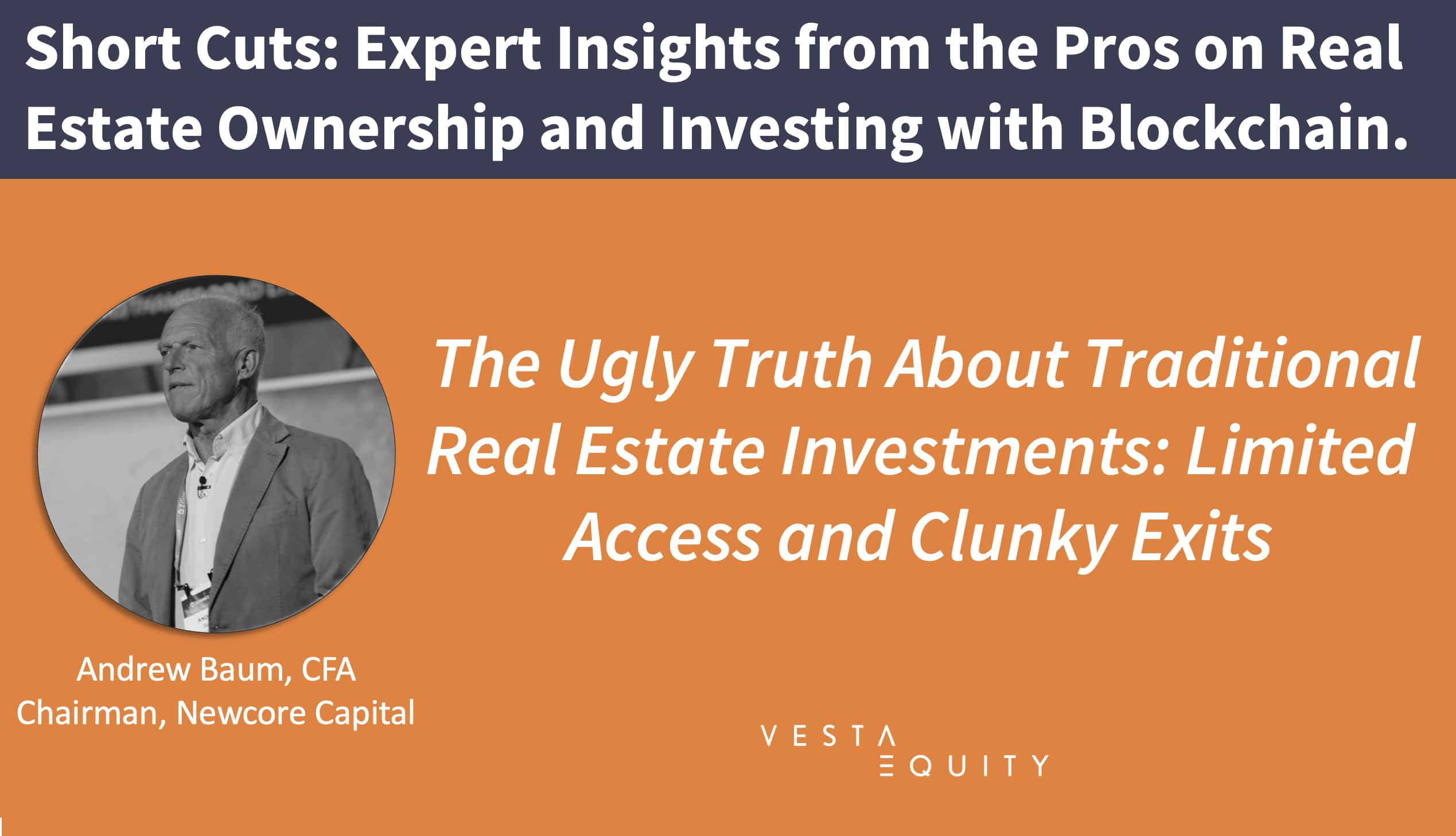Latest Content > First Movers Advantage: Why VCs Must Lead the Tokenized Home Equity Charge
First Movers Advantage: Why VCs Must Lead the Tokenized Home Equity Charge

In recent years, the intersection of real estate and financial services has witnessed a revolutionary shift with the emergence of home equity tokens. Tokenization in real estate, facilitated by blockchain technology, has introduced a groundbreaking shift in how we view property investment. It's no longer just an idea, but a practical innovation that has garnered attention from a broad spectrum of investors, including venture capital. The convergence of technology and real estate through tokenization is reshaping the landscape, promising a new era of growth and accessibility in property investment by freeing capital in the world’s largest asset class.
A recent report by Savills Impacts, titled "Total Value of Global Real Estate: Property remains the world’s biggest store of wealth." Published in September 2023 provides detailed insights into the value and trends in the global real estate market. It estimates the total value of the world's real estate at $379.7 trillion, with a notable portion, approximately $287.6 trillion, attributed to residential property. This represents a significant store of global wealth, with residential real estate comprising just over three-quarters of the total value in the real estate sector.
Understanding Home Equity Tokens

Home equity tokens are a product of blockchain technology and smart contracts, enabling the fractional ownership of real estate. By tokenizing the equity of a property, these digital assets divide ownership into tradable and transferable tokens, allowing investors to participate in real estate markets with a level of liquidity previously unimaginable. This groundbreaking concept brings together the tangibility of real estate and the flexibility of digital assets, opening new horizons for both homeowners and investors.
Breaking the Traditional Barriers
The traditional real estate market is often characterized by barriers such as high entry costs, lack of liquidity, and a slow and cumbersome transaction process. Home equity tokens break down these barriers, offering a more accessible and efficient way for investors to enter the real estate market. Fractional ownership allows individuals to invest in high-value properties with lower capital, diversifying their portfolios without the need for substantial upfront investments.
Additionally, the liquidity provided by these tokens enables investors to buy and sell their ownership stakes more easily, reducing the time and effort associated with traditional real estate transactions. This newfound liquidity is particularly attractive for those seeking short-term returns or those looking to quickly adjust their investment portfolios.
Why Venture Capital Needs to Invest in this New Paradigm

The investment thesis around the tokenization of real estate, particularly through home equity tokens, presents a substantial opportunity for venture capital. This approach capitalizes on the intersection of real estate and financial services, leveraging blockchain technology to offer increased liquidity, accessibility, and democratization of real estate investment. It disrupts a traditionally rigid industry and aligns with digital finance trends. The scalability of this model lies in its ability to open real estate markets to a wider global audience, including those with limited capital, and to enhance transactional transparency and efficiency, making it a compelling sector for investment and innovation.
A recent study by Business Law Digest, USC established that only about 3% of the global population has invested in real estate, though over 80% view it as a good investment. The high upfront costs, complex processes, and lack of liquidity in traditional real estate investments are barriers that tokenization overcomes. By offering fractional ownership, tokenization allows for smaller investments in real estate, increasing the market's accessibility.
The rise of home equity tokens marks a pivotal moment in the convergence of real estate and technology driven financial services. By overcoming traditional barriers and providing innovative investment avenues, these tokens are setting the stage for a transformative future in real estate investment.
In the article "How tokenizing real estate can turn the ‘rules’ on their head – by mastering them first," Padraic Convery summarizes insights from Andy Yiu, Head of Corporate Finance at BOA Financial Group. Yiu emphasizes the importance of an ecosystem to support the growth of real estate tokenization, advocating for early adopters willing to take calculated risks to foster this emerging market. He suggests that a collaborative effort among various stakeholders is crucial for the market's development. The role of venture capital is crucial, while offering Limited Partners (LPs) significant potential for investment returns.
We stand on the brink of significant disintermediation in the world's largest asset class. This shift will permanently change how people access their property equity and offer investors transparent, unrestricted access. It will also enable more effective leveraging of an asset traditionally burdened with barriers and friction.
The question is not will RWAs like real estate be digitized, but who is going to do it and how big an opportunity will they carve out? Given the global size of the market, it will make many of the multi-billion Web 2.0 businesses seem small by comparison.
Investment Properties
Vesta Equity offers tokenized home equity investments through its marketplace at https://app.vestaequity.net/marketplace
Sign up to get alerts about new posts
What’s New

The Case Against Mortgage-backed Securities in a World of Residential Tokenized Home Equity Investments
In the ever-evolving landscape of finance and investment, innovation is key. Traditional financial instruments, such as Mortgage-backed securities (MBS), have long been the bedrock of the real estate market. However, in a world driven by technological advancements and financial creativity, it's time to question whether MBS still hold their relevance.
 Read Blog
Read Blog

Short Cuts: Expert Insights from the Pros on Real Estate Ownership and Investing with Blockchain
The ugly truth about traditional real estate investments: limited access and clunky exits with Andrew Baum CFA, Chairman of Newcore Capital.
 Watch Video
Watch Video


